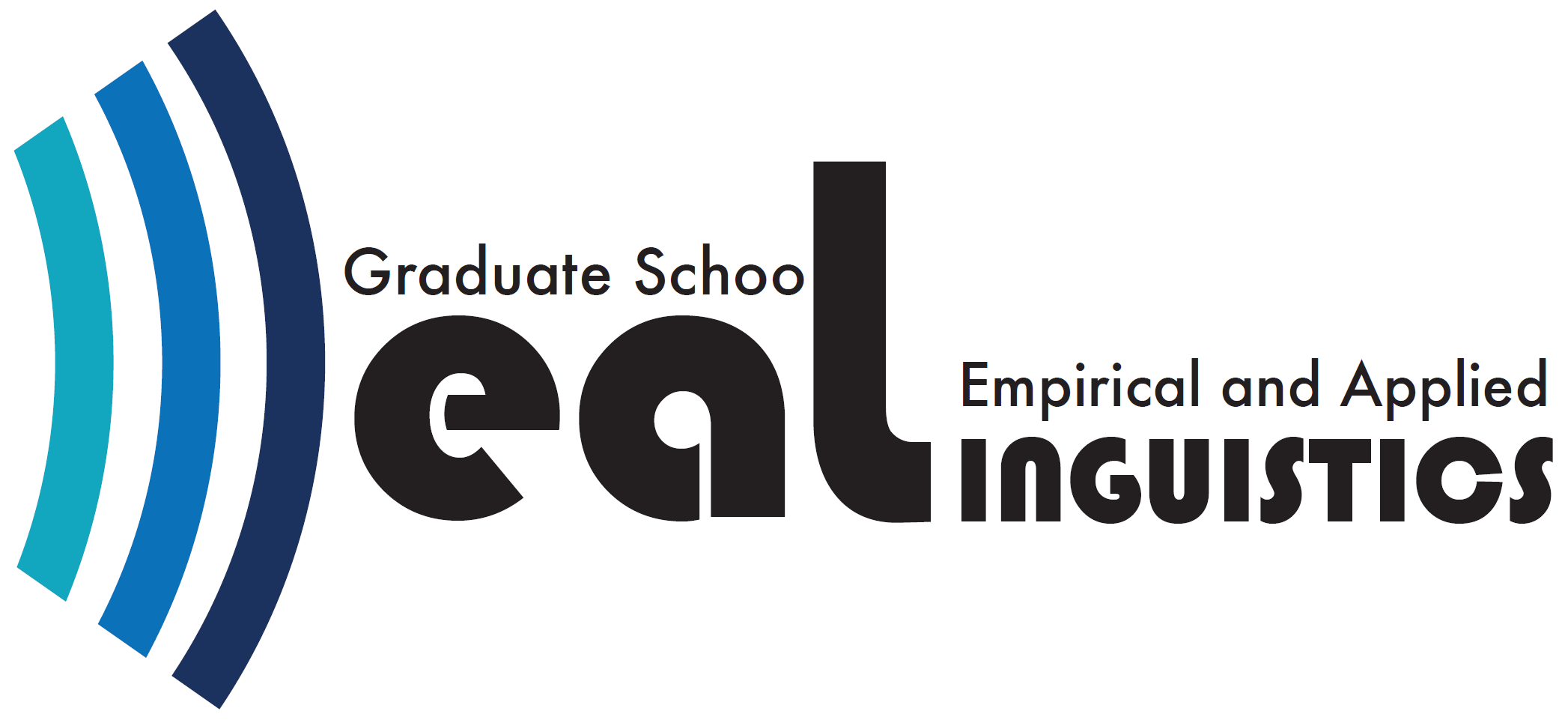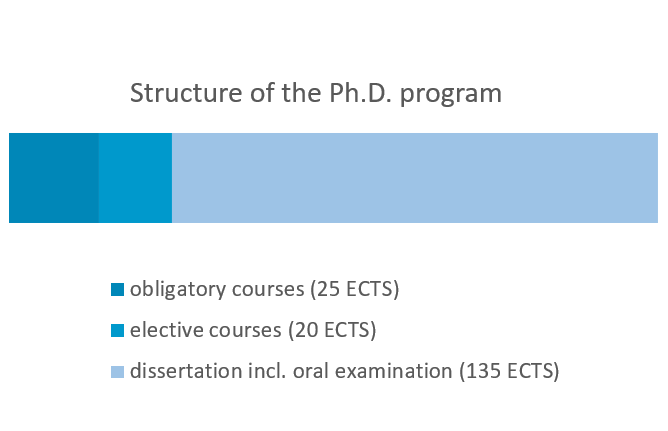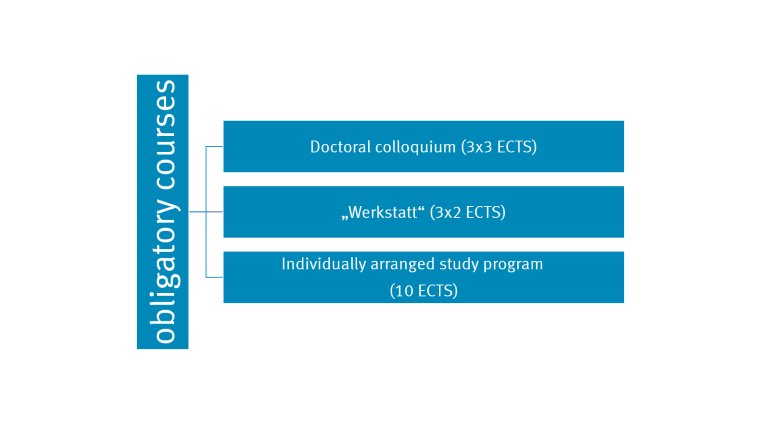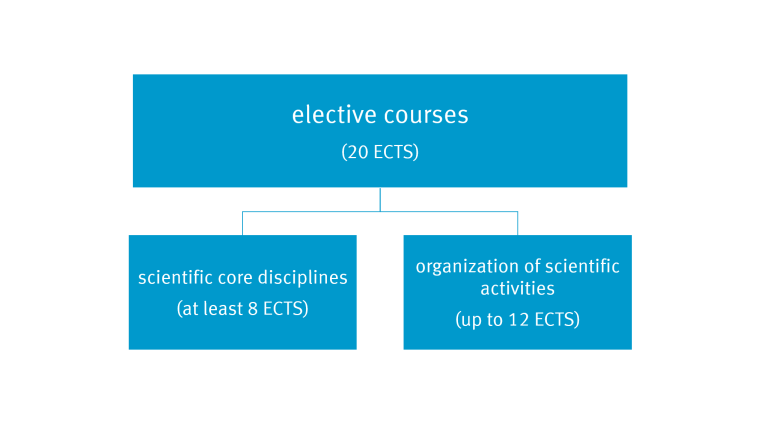Contents and Structure of the Program
The program covers 180 ECTS-points. One credit point translates into a work load of 30 hours. The dissertation counts for 130 ECTS-points. The other 50 credit points must be earned as follows: 25 credit points in obligatory courses, 20 credit points in elective courses, and 5 points in the final oral examination. The Ph.D. program is scheduled for six semesters. However, this time frame can be extended for part times students up to a total of 12 semesters.
The doctoral students in the PhD program Empirical and Applied Linguistics can write their dissertation on any linguistic subject area, including general linguistics, second language acquisition and a linguistic topic within the framework of a specific philology. The student can choose whether to focus on a more theoretical or a more applied topic, provided that the dissertation has a solid empirical basis. The goal of the PhD program is to ensure that the doctoral student is proficient in various methods of linguistic data collection and analysis and can therefore use these methods in a critical and reflected way. This will ensure that the dissertation has a solid empirical foundation.
In addition to the regular content of the doctoral program, we offer our doctoral students a number of other opportunities that serve to further their qualifications and networking. In addition to the guest lectures in the Research Forum, which are open to the public, we organize workshops at least once a year that aim to teach relevant working tools or to deepen methodological knowledge. Furthermore, every two years, PhD students have the opportunity to get involved in the organization of a junior researcher conference, thus enhancing their competencies in the field of scientific organization. Information on past events can be found in the News & Events section.




